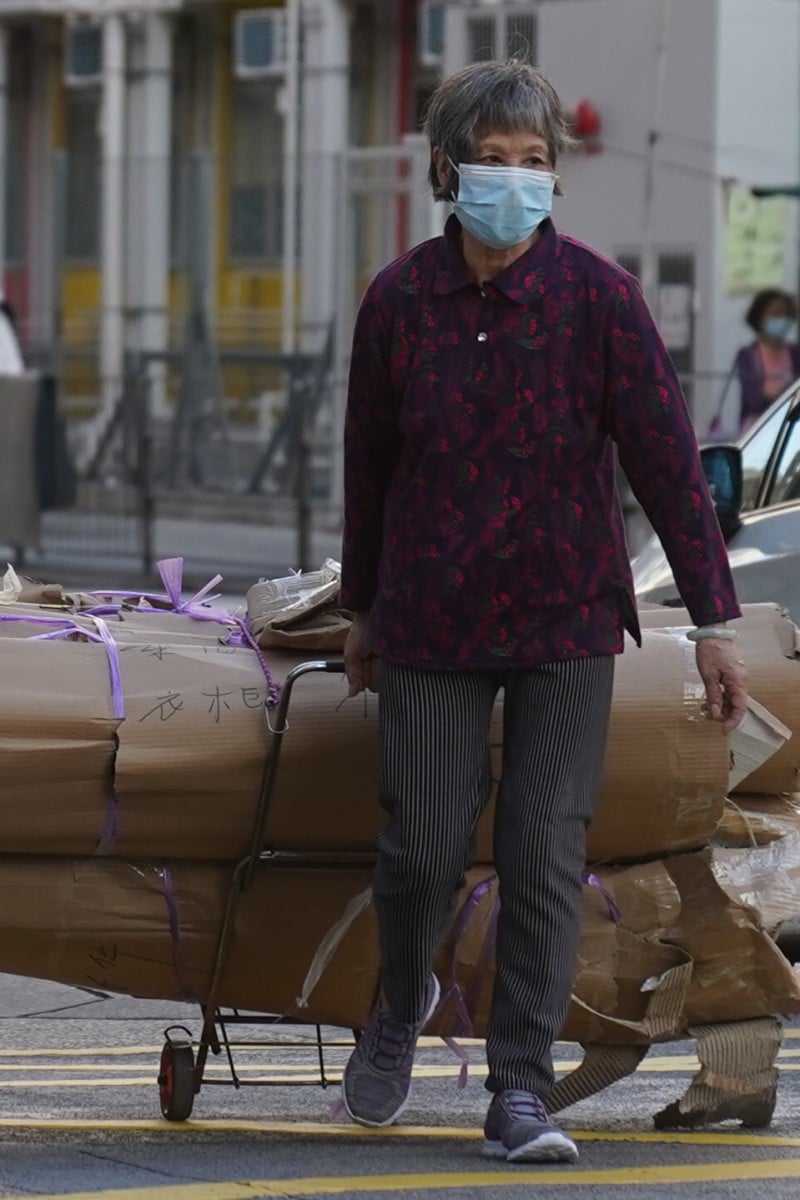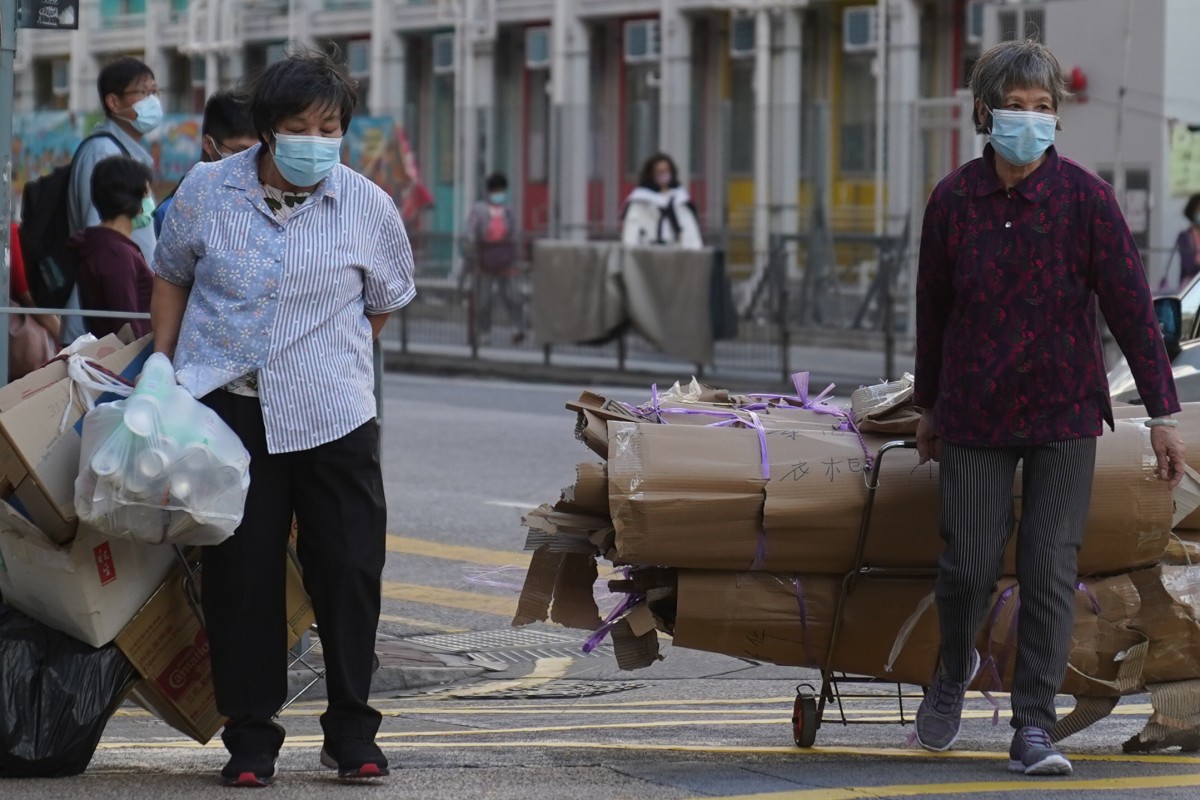
- Single-family households, often run by women, are among the most at risk
- Many households still rely on women to be the primary caregiver, restricting their job options
 One in five women in Hong Kong lives in poverty, says a new government report. The number reached a 12-year high in 2020. Photo: SCMP/ Sam Tsang
One in five women in Hong Kong lives in poverty, says a new government report. The number reached a 12-year high in 2020. Photo: SCMP/ Sam TsangThe number of women living in poverty in Hong Kong hit a 12-year high in 2020, with more than one in five females considered poor, the latest government poverty report revealed.
Last year, more women than men fell into poverty, totalling around 887,000 females, or 24.2 per cent. Meanwhile, the number of males living in poverty totalled around 766,000, or around 22.9 per cent of the population. The annual Poverty Situation Report also showed that single-family households had a higher risk of falling into poverty than the overall population.
What the 2020 Poverty Situation Report revealed
Ann, 36, a single mother of two girls, is one of the city’s impoverished women. After her divorce in 2018, she was entitled to receive a monthly maintenance payment of HK$4,000, deducted from her social security allowance.
“Since the pandemic, I have not been able to receive any money from my ex-husband, and I have given up trying to recover the alimony money I’m owed because the legal procedures are too complicated,” said the mother, who asked not to be identified by her real name.
Currently, she is unemployed and relies on the HK$9,000 government allowance she receives, which has to cover rent, water and electricity, as well as her daughters’ study fees.
“Being a full-time mother is tiring, as you get no pay or appreciation. When you reach retirement age, you have nothing, since we have no savings or money from the government’s retirement savings scheme,” she said.
She hoped the government could provide more financial and social support for women that would allow them to return to the workplace, such as childcare services.
“I really want to get a job, so that I can have a stable income and a chance to connect with society … Now, I have no plans for the future, I just live from one day to the next,” she said.
Landlords find new ways to exploit vulnerable HK renters
Angus Wong, a development officer from the Hong Kong Federation of Women’s Centre, said the gendered division of domestic labour is the root cause of women’s poverty. “Many households in Hong Kong still rely on women to be the family caregiver, and that has restricted their job options,” he said.
Working mothers can generally only opt for jobs that are family-friendly, such as those that offer flexible working hours and allow them to pick up their children from school. “Those jobs are usually low-skill and low salary, so it is hard to get them out of poverty,” he explained, adding that gender inequality can be observed in the city’s retirement protection scheme.
The plight of Hongkongers waiting for public housing
All too often, women take up the role as unpaid caregiver for years, making them ineligible to be covered by the city’s Mandatory Provident Fund (MPF) like most employed people in the city, Wong said.
“In this latest poverty report, the government emphasised the MPF as a key alleviation strategy. But at the end of day, this scheme still fails to provide retirement protection to the unpaid caregivers at home.”
